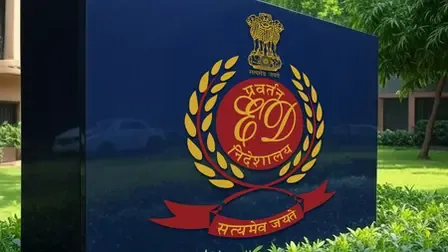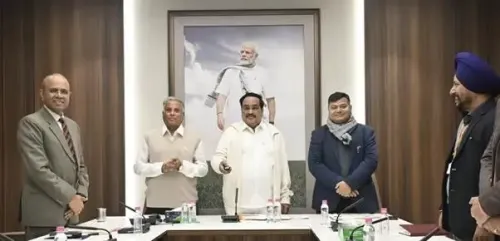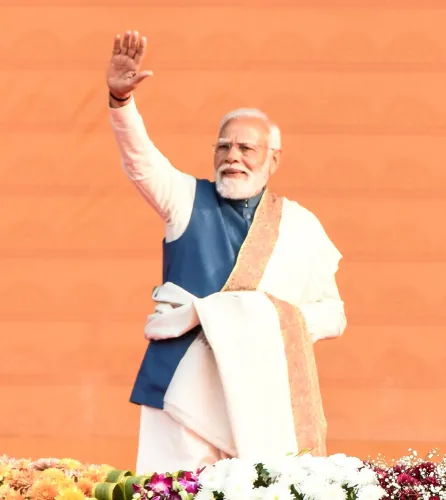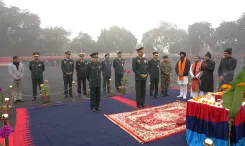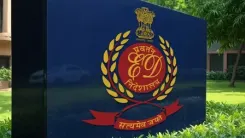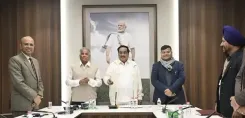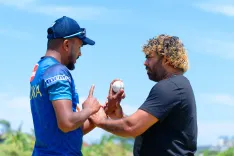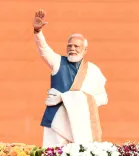Will the SC Establish Guidelines for Summoning Advocates by Probe Agencies?
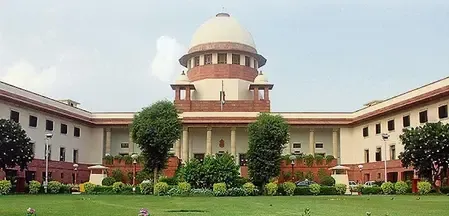
Synopsis
Key Takeaways
- Supreme Court's focus on protecting lawyer-client privilege.
- Guidelines could redefine the relationship between advocates and investigative agencies.
- Importance of upholding legal professionals' rights in investigations.
- Potential for judicial oversight in exceptional cases.
- Call for comprehensive legal framework to safeguard advocacy.
New Delhi, July 21 (NationPress) The Supreme Court deliberated on Monday regarding the establishment of guidelines for investigative agencies concerning the issuance of summons to legal professionals for offering legal advice to clients or representing them in judicial settings.
A Bench led by Chief Justice of India (CJI) B.R. Gavai and Justice K. Vinod Chandran was addressing a suo moto case titled "In Re: Summoning Advocates Who Provide Legal Opinions or Represent Parties During Investigations and Related Concerns."
During the proceedings, the CJI Gavai-led Bench expressed astonishment over the practice of summoning lawyers, emphasizing that communications with clients are privileged and safeguarded from disclosure. "How can lawyers be summoned in this manner? This is privileged communication," the apex court remarked.
Attorney General of India R. Venkataramani, the country's highest legal officer, indicated that upon receiving summons, senior advocate Arvind Datar immediately informed the Enforcement Directorate (ED) officials that such actions were inappropriate. Solicitor General (SG) Tushar Mehta echoed this sentiment, asserting that lawyers should not be summoned for professional counsel.
SG Mehta referenced a case from Gujarat where a lawyer purportedly advised a murder suspect on how to eliminate evidence. The apex court noted that a prior judgment already addressed such exceptional situations.
The CJI Gavai-led Bench scheduled the matter for further discussion on July 29 for the purpose of framing guidelines and indicated the appointment of an amicus curiae at the next hearing.
In the interim, the court requested the parties involved to submit a detailed note.
Earlier, a two-judge Bench comprising Justices K.V. Viswanathan and N.K. Singh agreed with the viewpoint that allowing investigative agencies to summon advocates engaged in a case or who have provided advice not only infringes upon the rights of the advocates but also significantly threatens the independence of the legal profession.
This Bench was addressing a plea from an advocate contesting the summons issued to him by the Gujarat Police, despite not being an accused or a significant witness in the FIR or the disputed agreement.
Granting temporary relief to the petitioner-advocate, the apex court ordered that no coercive measures would be taken against him in connection with the summons issued by the Assistant Police Commissioner. It also formulated two questions for thorough examination and directed that the matter be referred for additional directions to the Chief Justice of India (CJI).
The first question was: When an individual is involved in a case solely as a lawyer advising the party, can the prosecuting agency directly summon the lawyer for questioning? The second question was: If the police assert that the individual's role extends beyond that of a lawyer, should they still be permitted to summon the lawyer directly, or should judicial oversight apply to these exceptional cases? Highlighting the need for a comprehensive resolution to the issue, the court called for input from the Attorney General of India, the Solicitor General, the Bar Council of India, the Supreme Court Bar Association (SCBA), and the Supreme Court Advocate-on-Record Association.
Following the ED's issuance of summons to senior advocates Arvind Datar and Pratap Venugopal, the SCAORA (Supreme Court Advocates-on-Record Association) urged the Supreme Court to take suo motu notice of the situation and to scrutinize the legality and propriety of such summons directed at legal professionals for opinions given in good faith.
In a letter, SCAORA President Vipin Nair requested the apex court to protect the constitutional and professional rights afforded to advocates and to establish appropriate guidelines to prevent any further erosion of lawyer-client privilege.



